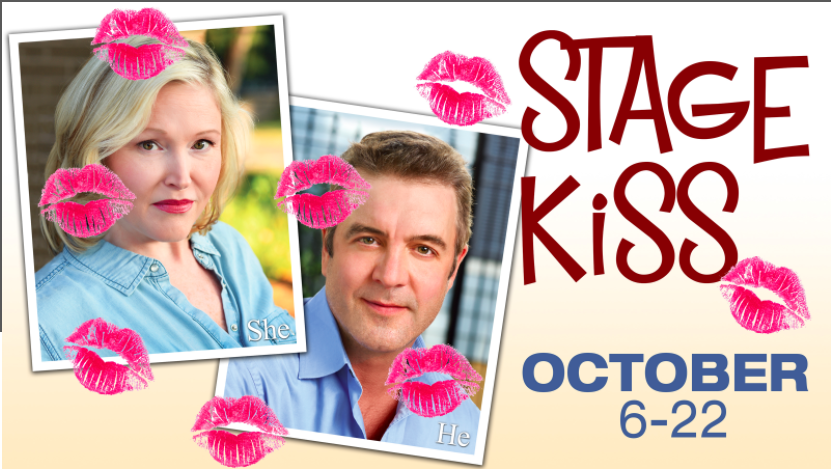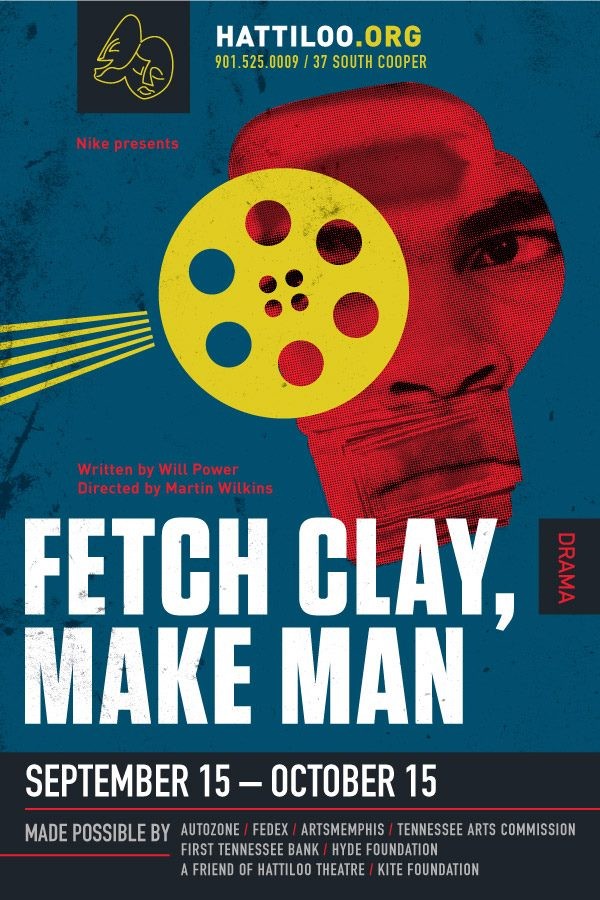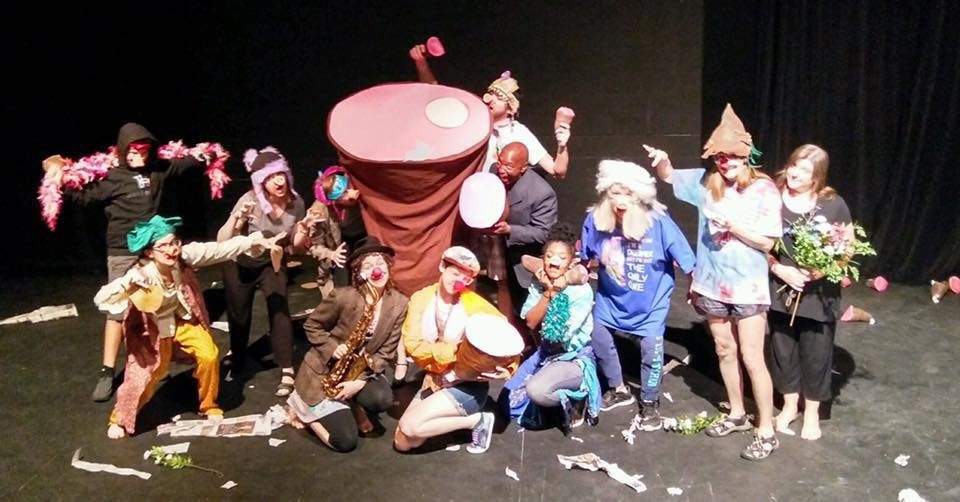
“If you were happy every day of your life, you wouldn’t be a human, You’d be a game show host.” — Heathers.
I’m pretty sure Brooke Papritz has been on a collision course with Heathers the musical since she embodied brutal, ambition-free entitlement in Carrie. She played the telekinetic title character’s teenage antagonist Chris, and sang the hell out of a muddled show’s best song. Papritz moves into the protagonist position this time, albeit one whose teen angst bullshit has a body count. She’ll play Veronica — the non-Heather-Heather made famous by a 16-year-old Wynona Ryder. She’ll be joined by a deliciously terrible threesome: Gia Welsh (Side Show) as Heather Chandler (in power red), Heather Duke (in envy green) and Heather McNamara (in cowardly yellow) as her school-ruling mean-girl compatriots.
What’s Your Damage? ‘Heathers,’ ‘Stage Kiss’ Open this Weekend!
High school is a foreign land — perhaps even another, needlessly cruel dimension where every choice a teenager makes, from scrunchie color and sneaker brand to pants-or-be-pantsed, is a matter of life and death. Heathers‘ twisted romance/revenge plot took that idea literally turning Ryder and co-star Christian Slater into a Bonnie & Clyde for the Clearasil set.
The original film version of Heathers was 1989’s antidote to everything John Hughes ever shot (that didn’t include Harry Dean Stanton) and in retrospect film critic Roger Ebert’s uncommonly cautious review makes an instructive frame for a film that threw caution to the wind.
“I approach Heathers as a traveler in an unknown country,” Ebert wrote, admitting it made him feel like a foreigner. “One who does not speak the language or know the customs and can judge the natives only by taking them at their word.”
What’s Your Damage? ‘Heathers,’ ‘Stage Kiss’ Open this Weekend! (3)
Heathers’ screenwriter Daniel Waters fully understood that teenagers don’t speak in slang or jargon but in code. Shocking as a comedy about murder and teen suicide may have been for some in 1989, Heathers was always more classical than edgy, especially in terms of complexity, idiomatic color and meaning. It set an appropriately dark and literary tone tone for Gen-Xers heading off to college and kicked open the door for savvy adaptations like 1995’s Jane Austen-inspired Clueless. Wisely the adaptors Kevin Murphy (Reefer Madness) and Laurence O’Keefe (Legally Blonde) held on to all the best lines (and most of the important tropes) while transforming Heathers into an unlikely musical, but they’ve also built it to function more of an extension of the original than a perfect carbon copy.
What’s Your Damage? ‘Heathers,’ ‘Stage Kiss’ Open this Weekend! (4)
Memphis’ favorite Tracy Turnblad, Courtney Oliver, is no stranger to adapted films about teen angst and budding sexuality. Past directing credits include Carrie the Musical, Debbie Does Dallas.
What’s Your Damage? ‘Heathers,’ ‘Stage Kiss’ Open this Weekend! (2)

Also opening this week at Theatre Memphis: Stage Kiss by Sarah Ruhl starring John Moore and Tracy Hansom with Stuart Turner, Chase Ring, Lena Wallace Black, Laurel Galaty, and Gordon Ginsburg.
Stage Kiss is a play you can almost judge from the title. What happens when two old are cast opposite one another in an old romantic melodrama? What does it mean when two actors find themselves really kissing? These are the obvious questions but when Ruhl’s writing nothing’s ever that obvious or exactly what it seems to be.
Directed by Tony Isbell who recently staged the terrific if under-attended Years to the Day for Quark. 
ONGOING: Fetch Clay, Make Man: Muhammad Ali enlists Stepin Fetchit to teach him Jack Johnson’s anchor punch. Solid acting, intriguing relationships. To read more about the background, click here. For the review click here.
 Carla the magnificent.
Carla the magnificent.
Shakespeare, Love, etc.
CLOSING: Shakespeare in Love is the fictional story of how Shakespeare wrote Romeo & Juliet set in London’s complicated theater world during the reign of Elizabeth I. Read the review here.
And speaking of Romeo & Juliet (and brutal social environments/teen suicide, to harken back to Heathers).Tennessee Shakespeare‘s bringing a free performance of R&J to the town Square in Collierville. Catch them both!

CLOSING: What a Piece of Work…
Our Own Voice Theatre turns its attention to another Shakespeare play — sort of. With What a Piece of Work is this relentlessly (but not indefatigably) experimental company aims to interpret Hamlet and criticize America’s current president and all things that lead to complacency.
Our Own Voice has a long history of developing topical, political work but there’s more at work here than mere resistance. Maybe it’s easier to share a director’s note from Bill Baker.
“So, why an hour own voice production of Hamlet? Have I lost my mind? Perhaps the second question answers the first. Our Own Voice has been having a bit of an identity crisis. Reaching our 25th anniversary has involved a lot of soul searching for this company, considering if and how we should continue on our theatrical mission. It seems time for a bold move. I know it is an insane decision, to undertake one of Shakespeare’s most difficult plays with a troupe of actors characterized by their lack of conventional theatrical training, a company more at home with making up plays then with serving the text of a great playwright. And, yes, I am aware that TheaterWorks has very recently been the home to a very fine production of Hamlet. New Moon Theater did an excellent production this past February. I was in the audience and I enjoyed every minute of it. In fact, I was inspired. I should say it is more because of that production than in spite of it that we have undertaken this one. Watching New Moon’s talented ensemble playing Shakespeare’s glorious language in this space set me to thinking about how to OOV might go about telling the story, interpreting these words. The juxtaposition of the two ensembles telling the same tale should highlight what, for me, is the true glory of theater, the unique human encounter that happens every time an actor performs for a spectator. The potential of that encounter is what our own voice has always devoted to exploring and expanding. Our patron saint Antonin Artaud said, “No more masterpieces!” And recognized that the true language of the theater is what human bodies do in the space. So we have not yet undertaken the classic dramatic texts. The time has come. Hamlet is perhaps the greatest play ever written, and it is in the public domain! This great story, these beautiful words are no one’s intellectual property. They belong to all of us. They are ours!”

So just what is Hamlet? A play about ham?